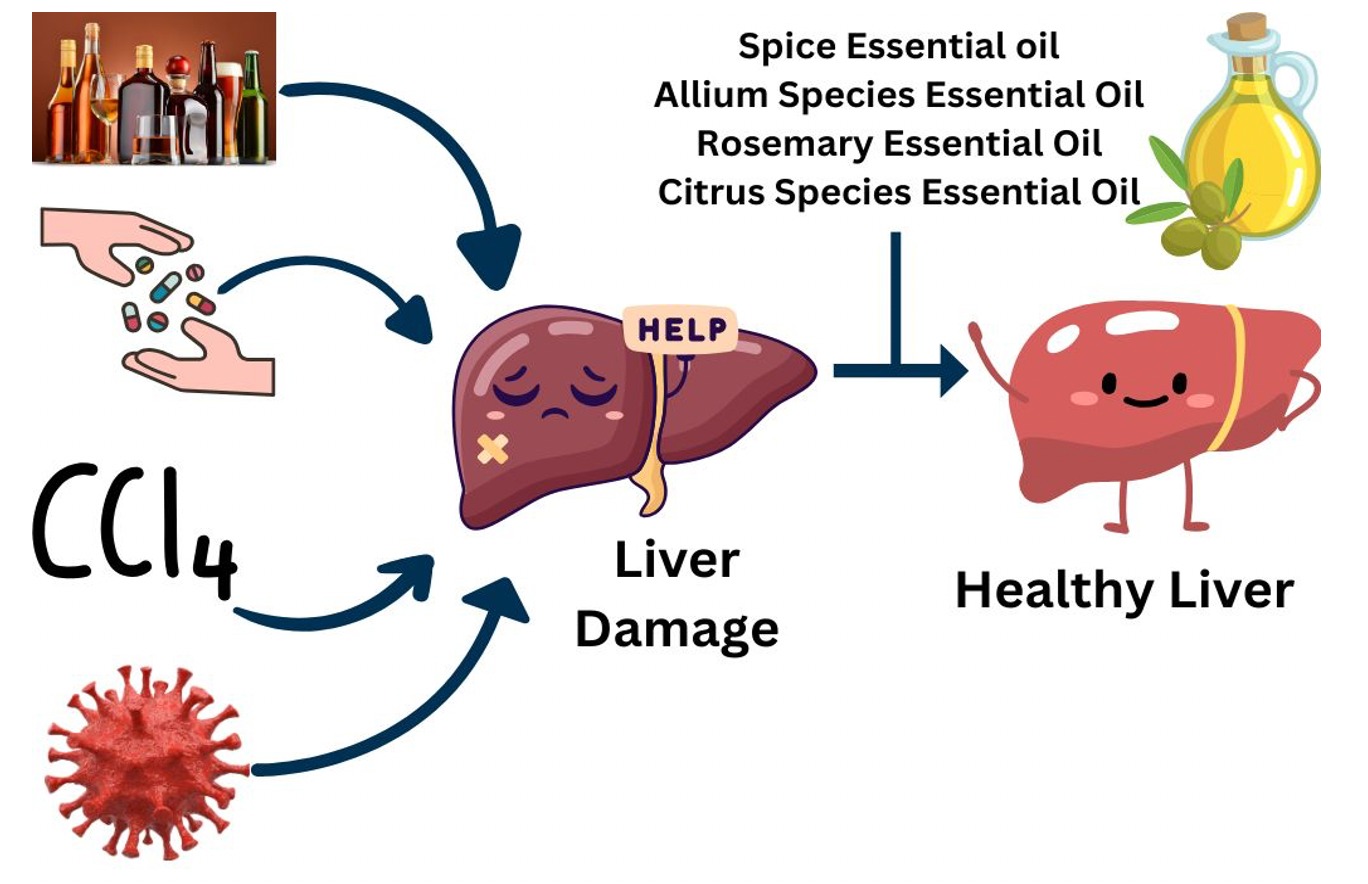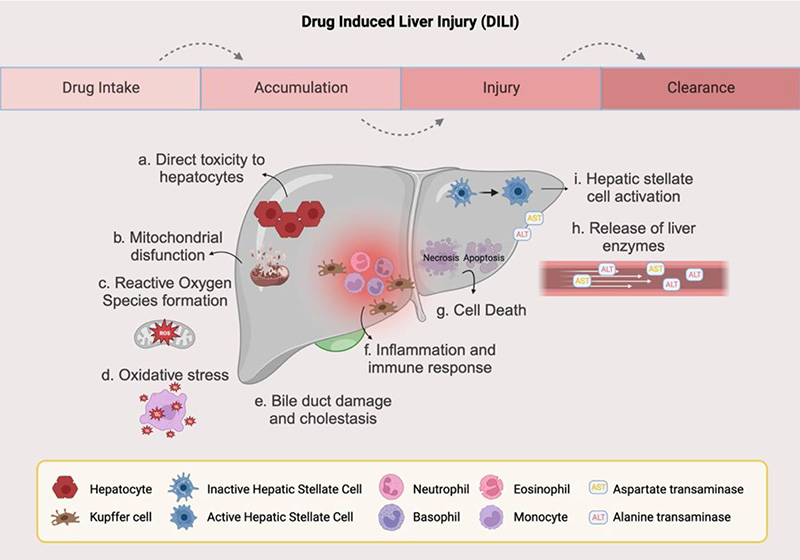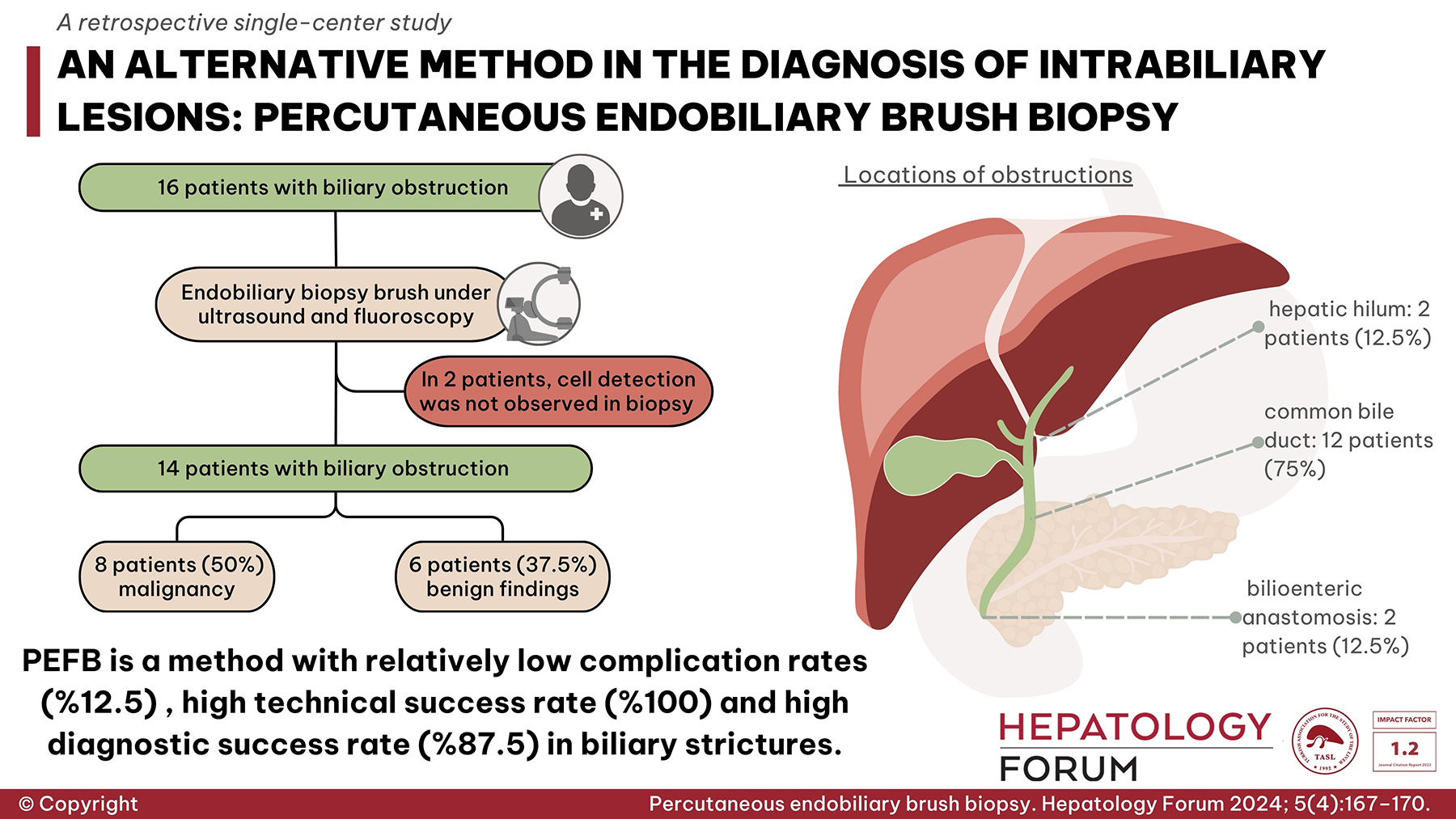Abstract
Echinococcus granulosus is predominantly found in the liver and can be effectively managed through antihelminthic therapy, surgical intervention, or interventional radiology. Percutaneous treatment (PT) has gained wide-spread popularity due to its minimally invasive nature. An integral step in surgical and PT procedures involves the utilization of protoscolicidal agents to eliminate the parasites. However, the administration of protoscolicidal agents carries the risk of inducing caustic sclerosing cholangitis (SC) if there is a communication between the cyst and the biliary tract. In this pio-neering study, we present two cases of caustic SC that occurred subsequent to PT for hydatid liver, necessitating further progression of the disease and ultimately leading to liver transplantation.





 Gokalp Okut1
Gokalp Okut1 









